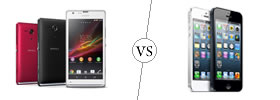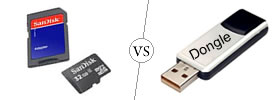Difference between Samsung Galaxy Tab 2 10.1 and Nexus 10
Key Difference: The Galaxy Tab 2 10.1 is a 10.1-inch tablet that was launched in May 2012. The tablets sports a Plane Line Switching (PLS) TFT capacitive touchscreen with approximately 149 ppi density, making the resolution on the screen not that great. The Wi-Fi model is powered by 1 GHz Dual-core Cortex-A9, while the Wi-Fi + Mobile model is powered by 1.5GHz, Dual-core Krait Qualcomm processor. The Nexus 10 is a tablet computer running Android 4.2 (also named Jelly Bean) operating system, which was released with it. It was developed in collaboration with Samsung.
 Following the launch of the Samsung Galaxy Tab 2 7.0, Samsung also needed a tablet for competing in the 10-inch tablet market. Lo and behold it launched the Samsung Galaxy Tab 2 10.1, which shares many similarities to its little brother. Similar to the Tab 2 7.0, the company launched two models of the Tab 2 10.1: Wi-Fi only and Wi-Fi + Mobile. The Wi-Fi and Wi-Fi + Mobile are quite identical in looks and also have similar hardware under the hood. The only differences between the two are the processor speed, OS and the camera features. The two different models allow the consumer to have the choice of either having only Wi-Fi or Wi-Fi + Mobile capabilities and pay accordingly.
Following the launch of the Samsung Galaxy Tab 2 7.0, Samsung also needed a tablet for competing in the 10-inch tablet market. Lo and behold it launched the Samsung Galaxy Tab 2 10.1, which shares many similarities to its little brother. Similar to the Tab 2 7.0, the company launched two models of the Tab 2 10.1: Wi-Fi only and Wi-Fi + Mobile. The Wi-Fi and Wi-Fi + Mobile are quite identical in looks and also have similar hardware under the hood. The only differences between the two are the processor speed, OS and the camera features. The two different models allow the consumer to have the choice of either having only Wi-Fi or Wi-Fi + Mobile capabilities and pay accordingly.
The Galaxy Tab 2 10.1 is a 10.1-inch tablet that was launched in May 2012. According to many review websites, the tablet has been a bit of a letdown compared to the original Tab 10.1. The company has completely shifted the focus of the tab and has even downgraded some of the features. To some it is worth the price, while the others are willing to shell out a little extra if the features are up to mark. The company has managed to keep the slim and sleek design of the device, which is one of the many good features of the Tab. The chassis is plastic and is available in brushed Titanium Grey, giving it a metal look. The speakers have been moved to the front of the screen and placed between the bezel and the chassis, making it seem like the tablet has ‘ears’. This also takes away from the fluidity of the bezel of the screen.
The tablets sports a Plane Line Switching (PLS) TFT capacitive touchscreen with approximately 149 ppi density, making the resolution on the screen not that great. The company has managed to put excellent viewing angles on the device but it still has a lot of reflective ability, making it harder to work under direct sunlight. The Wi-Fi model is powered by 1 GHz Dual-core Cortex-A9, while the Wi-Fi + Mobile model is powered by 1.5GHz, Dual-core Krait Qualcomm processor. Both the models offer 1 GB RAM. The device is a bit jerky in responding and is a little slow when switching between home screens. The Wi-Fi model comes with Android 4.0 Ice Cream Sandwich, while the Wi-Fi + Mobile comes with Android 4.1 Jelly Bean, but fear not the Wi-Fi model is upgradable to v4.1. Samsung has also added a screenshot button to the soft buttons at the bottom of the screen.
When in landscape mode, the device houses five features on the top of the device: a volume rocker, microSD slot, power/sleep button, an IR blaster, and a headphone jack. The camera sans flash resides on the back, while a dock connector and microphone pinhole are at the bottom of the device. The device offers a 3MP rear camera and a VGA camera for video calling. The rear camera offers decent images, though they images may be grainy when not taken in adequate lighting. The Wi-Fi model offers various camera features such as: Shot Modes Effects, ISO, Scene mode, Shooting mode, White balance, Camcorder, HD Recording and HD Playback. The device also has video taking capability. The tablet is available with 16/32 GB internal storage capacity that is upgradable by 32GB. The Galaxy Tab 2 10.1 houses a powerful non-removable Li-Po 7000 mAh battery, providing a good battery life compared to many other tablets. The device comes with already loaded Samsung apps, while other apps can be downloaded from the Google Play.
 Among the number of various companies launching phones based on Google’s Android, Google has also launched its own line of smartphones based on Android, called the Google Nexus. Each device in the Nexus line is produced via collaboration between Google and a leading original equipment manufacturer (OEM) partner. The Nexus devices in general have an advantage over other devices in that the Android in the Nexus devices is pure, i.e. the Android does not have any manufacturer or wireless carrier modifications to it, such as a custom graphical user interface. The Android also has an unlockable bootloader to allow further development and end-user modification, all of which is usually blocked on other Android smartphones.
Among the number of various companies launching phones based on Google’s Android, Google has also launched its own line of smartphones based on Android, called the Google Nexus. Each device in the Nexus line is produced via collaboration between Google and a leading original equipment manufacturer (OEM) partner. The Nexus devices in general have an advantage over other devices in that the Android in the Nexus devices is pure, i.e. the Android does not have any manufacturer or wireless carrier modifications to it, such as a custom graphical user interface. The Android also has an unlockable bootloader to allow further development and end-user modification, all of which is usually blocked on other Android smartphones.
The Nexus 10 is a10-inch tablet computer running Android 4.2 (also named Jelly Bean) operating system, which was released with it. It was developed in collaboration with Samsung. It is Google’s second tablet, directly following the Nexus 7. It features a 10.1-inch, 2560×1600 pixel display, which at the time of its release was the highest resolution display for a tablet. The Nexus 10 features a Samsung Exynos 5250 system on chip, a dual-core 1.7 GHz Cortex A15 central processing unit and a quad-core ARM Mali T604 graphics processing unit. The Nexus 10 was launched in two storage sizes, 16 GB and 32 GB
The Nexus 10 features Photo Sphere, a new camera technology that allows one to take 360 deg Panorama shots. The tablet also features a quick settings menu, allows for application of widgets on the lock screen, as well as gesture typing; an updated version of Google Now; and multiple user accounts for tablets. The tablet offers a new share and customize feature that allows multiple users to create their own profile and customize it according to their own needs. The tablet offers a 5 MP rear camera and a 1.9 MP front camera for video chatting. The tablet does not support SIM capability. The device also allows nine people to chat simultaneously using Google Hangouts. The Nexus 10 is available for approximately USD 399, with the price varying depending on the model.
The information for the detailed table about the two phones has been taken from the Samsung website, expertreviews.co.uk, Google website and GSMArena.com.
|
|
Samsung Galaxy Tab 2 10.1 |
Nexus 10 |
|
Launch Date |
May 2012 |
November 2012 |
|
Company |
Samsung |
Google; designed in collaboration with and manufactured by Samsung. |
|
Size |
256.6 x 175.3 x 9.7 mm |
263.9 x 177.6 x 8.9 mm |
|
Display |
10.1-inch PLS TFT capacitive touchscreen |
Super PLS TFT capacitive touchscreen, 16M colors |
|
Screen |
800 x 1280 pixels (~149 ppi pixel density) |
2560 x 1600 pixels, 10.1 inches (~299 ppi pixel density) |
|
Protection |
Corning Gorilla Glass |
Corning Gorilla Glass 2 |
|
Weight |
581 grams (Wi-Fi only) and 583 (Wi-Fi + Mobile) |
603g (1.33 lb) |
|
2G Network |
GSM 850 / 900 / 1800 / 1900 |
N/A |
|
3G Network |
HSDPA 850 / 900 / 1900 / 2100 |
N/A |
|
4G Network |
LTE Dual-band:17 and 4 |
N/A |
|
GUI |
TouchWiz UX UI |
Pure Android |
|
CPU speed |
1 GHz Dual-core Cortex-A9 (Wi-Fi only)1.5GHz, Dual-core Krait, Qualcomm (Wi-Fi + Mobile) |
Dual-core 1.7 GHz Cortex-A15 |
|
GPU |
PowerVR SGX540 |
Quad-core Mali T604 |
|
OS |
Android v4.0 (Wi-Fi) and Android v4.1 (Wi-Fi + Mobile) |
Android OS, v4.2 (Jelly Bean), upgradable to v4.2.1 (Jelly Bean) |
|
Chipset |
TI OMAP 4430 |
Exynos 5250 |
|
RAM |
1 GB RAM |
2GB RAM |
|
SIM Size |
mini-SIM |
N/A |
|
Internal Memory |
16/32 GB |
16/32 GB storage |
|
Expandable Memory |
Upgradable to 32 GB |
None |
|
Sensors |
Accelerometer, light, compass |
Accelerometer, gyro, proximity, compass, barometer |
|
Connectivity |
EDGE, GPRS, LTE, Bluetooth, Wi-Fi and USB. |
WiFi 802.11 b/g/n (MIMO+HT40) Bluetooth NFC (Android Beam) Dual side NFC Micro USB Magnetic Pogo pin charger Micro HDMI 3.5mm headphone jack |
|
Data |
GPRS, EDGE, WLAN, Bluetooth, USB, USB Host, Wi-Fi Hotspot. |
WiFi, NFC, USB |
|
Speed |
HSDPA, 21 Mbps; HSUPA, 5.76 Mbps |
- |
|
WLAN |
Wi-Fi 802.11 a/b/g/n, Wi-Fi Direct, dual-band, Wi-Fi hotspot |
Wi-Fi 802.11 b/g/n, Wi-Fi Direct, DLNA |
|
Bluetooth |
Bluetooth v3.0 with A2DP |
Bluetooth v3.0 with A2DP |
|
USB |
USB v2.0, USB Host |
Micro-USB v2.0 |
|
Primary Camera |
3.15 MP |
5 MP, 2592х1936 pixels, autofocus, LED flash |
|
Secondary Camera |
VGA |
1.9 MP |
|
Video |
Full HD@30fps |
1080p@30fps |
|
Camera Features |
|
|
|
Sound Enhancement |
SoundAlive |
No |
|
Audio supported formats |
MP3, AAC/ AAC+/ EAAC+, WMA, OGG (vorbis), FLAC, AC-3 |
MP3/WAV/eAAC+/WMA/ Flac player |
|
Video supported formats |
3GP, AMR, H.263, H.264, MPEG4,QCIF |
MP4/H.264/DivX/ WMV player |
|
Battery Capacity |
Non-removable Li-Po 7000 mAh battery |
Non-removable lithium-ion polymer 9,000 mAh battery |
|
Talktime |
3G: 12 hours |
N/A |
|
Standby Time |
3G: 26 Days |
- |
|
Available Colors |
Titanium Silver, White |
Black |
|
Messaging |
Email, Push Email, IM, RSS |
Email, Push Email, IM, RSS |
|
Browser |
HTML, Adobe Flash |
HTML5 |
|
Radio |
No |
No |
|
GPS |
A-GPS with GLONASS |
Yes, with GLONASS |
|
Java |
Java via Java MIDP emulator |
None |
|
Additional Features |
|
|
Image Courtesy: samsung.com, androidheadlines.com









Add new comment